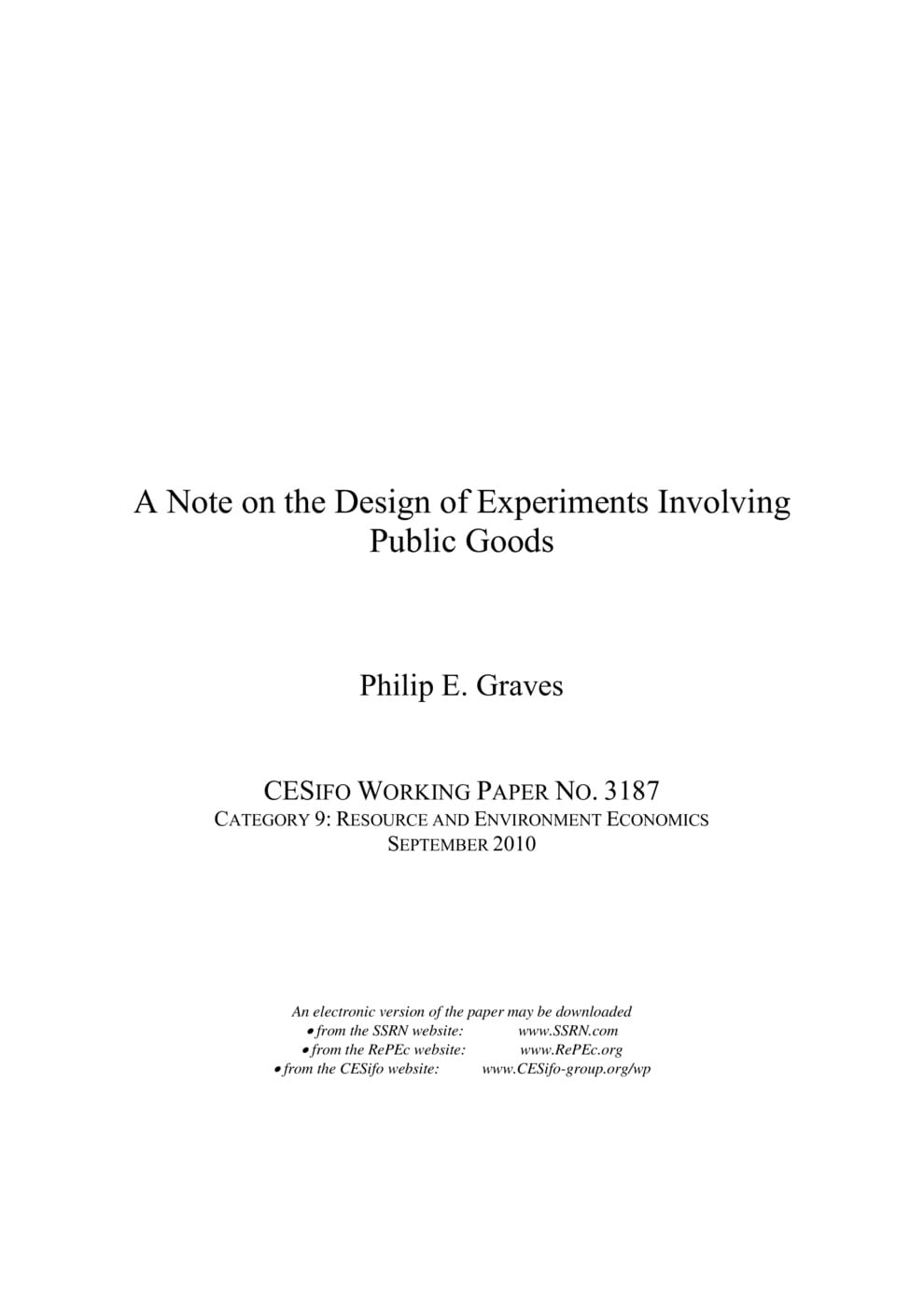A Note on the Design of Experiments Involving Public Goods
CESifo, Munich, 2010
CESifo Working Paper No. 3187

Concern about potential free riding in the provision of public goods has a long history. More recently, experimental economists have turned their attention to the conditions under which free riding would be expected to occur. A model of free riding is provided here which demonstrates that existing experimental approaches fail to explore a potentially important real-world dimension of free riding. In a cash-in-advance economy, free riding becomes a two-stage problem, while existing experiments only address the second stage. That is, one would expect households with high demands for public goods relative to private goods to generate less income than households preferring ordinary private goods, because the former are unable to individually increment the public good and leisure is valuable. Existing experiments start with a given number of “tokens” for each decision-maker, effectively only addressing the second stage of the free riding problem, namely, under what conditions free riding becomes a problem out of a given income. A recommended solution to this problem is to incorporate the potential to generate income prior to (or simultaneously with) the decision of how to allocate that income between private and public goods.
Resources and Environment